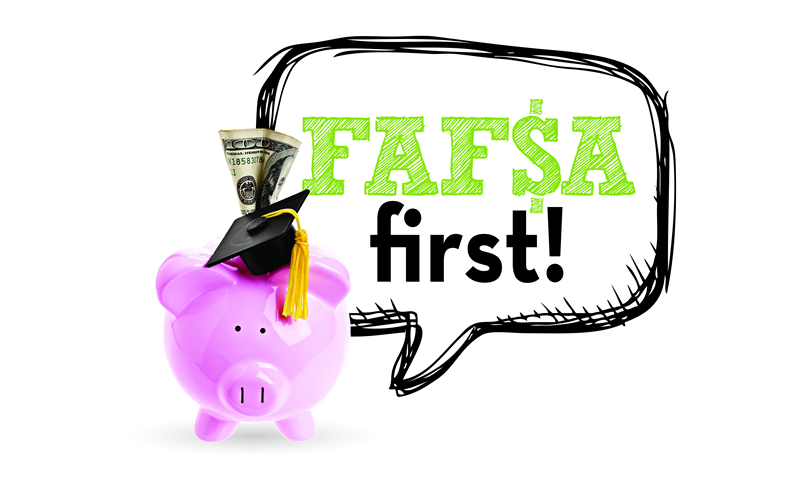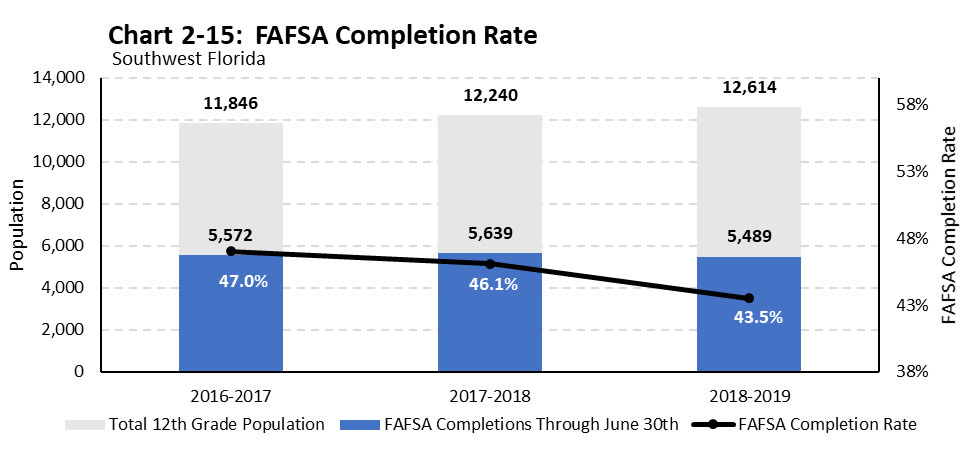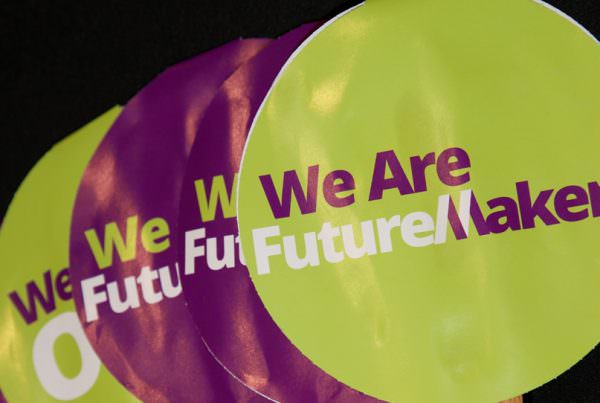
October 2020 ushers in a variety of seasonal changes for Southwest Florida residents – the promise of cooler temperatures and lower humidity on the horizon, preparing for the migration of snowbirds from the north, and the crowning of a World Series champion at the end of a shortened Major League Baseball season. Perhaps the most important October event is the beginning of FAFSA season! Unfortunately, the FAFSA completion rate among Southwest Florida students decreased from 46.1% in 2017-2018 to 43.5% in 2018-2019 and, according to a June 2020 Florida College Access Network (FCAN) survey, about 42% of currently enrolled Floridians said their postsecondary plans have changed due to COVID-19, including taking a semester or year off, starting sooner than planned, or transferring to another school (http://floridacollegeaccess.org/wp-content/uploads/2020/06/FCAN-COVID-19-Survey-Infographic-June-2020.pdf).
The FutureMakers Coalition’s FAFSA First! campaign had a significant impact on increasing the rate of FAFSA completion in the past. However, the program’s funding ran out in 2017, which may account for some of the decrease in FAFSA completion in the most recent reporting period. FCAN estimates that Florida students continue to leave behind over $100 million in Federal Pell Grants by not completing FAFSA, a figure that has not changed significantly since 2013. Using the data above from Southwest Florida, 150 fewer students completed FAFSA between 2017-2018 and 2018-2019 (5,639 vs. 5,489, respectively), which could represent upwards of $600,000 in Pell Grants that were left untapped in our region last year (assuming the average Pell Grant award for Florida students is just over $4,000)!
Data suggests that Floridians with a high-quality credential beyond high school can better withstand the uncertainty that comes with tough economic times. The results of the FCAN survey support this observation and show that the disruption to our economy due to COVID-19 is having the greatest negative financial impact on those residents with lower levels of education – 64% of Floridians with a high school degree or less reported a job loss, pay cut, or reduced work hours. Although our current environment feels chaotic and unpredictable, it is important to begin FAFSA planning now, take things step by step, and have patience. The FutureMakers Coalition has created a resource to help you along the way.
Visit https://www.futuremakerscoalition.com/fafsafirst/ to learn more about how to make the FAFSA process as easy as possible and for information and resources about FAFSA. Students and parents can also follow FutureMakers Coalition’s FAFSAFirst on Instagram at FAFSAfirst, on Facebook at FAFSAfirst, and on Twitter @FAFSAfirst.




























